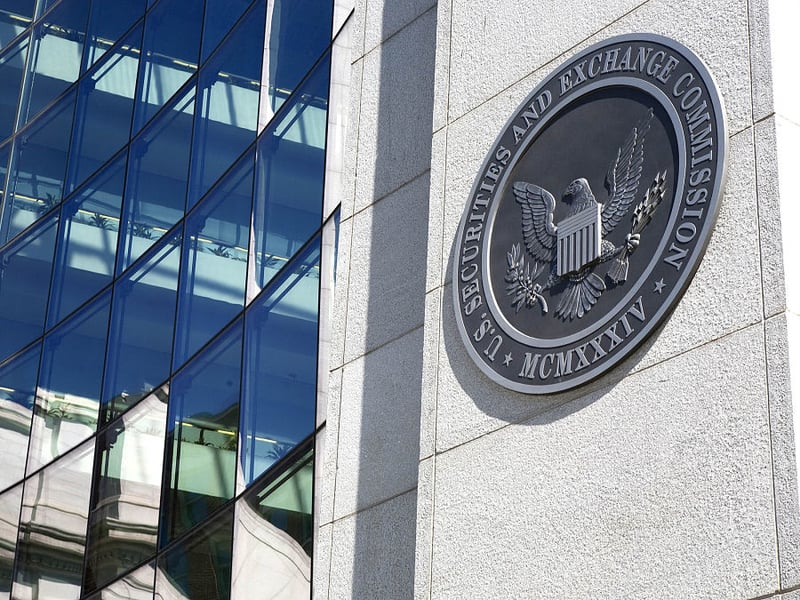

West Virginia Attorney General Patrick Morrisey has threatened to sue the Securities and Exchange Commission if it doesn’t back off its effort to expand environmental, social and governance disclosures.
Morrisey said that mandating ESG disclosures from companies that are not related to their financial performance would represent regulatory overreach and would be unconstitutional because it would not “withstand strict scrutiny” under free speech rights.
In a letter Thursday to SEC Acting Chair Allison Herren Lee, Morrisey criticized a recent speech in which Lee said the SEC is considering expanding climate risk and ESG disclosures to meet investor demand.
“There is a significant constitutional obstacle to the unprecedented and dangerous course you charted in your remarks,” Morrisey wrote. “If the Commission proceeds down this pathway, states and other interested stakeholders will not hesitate to go to court to oppose a federal regulation compelling speech in violation of the First Amendment.”
Disclosures related to ESG issues such as diversity and corporate political spending are outside the SEC’s regulatory purview, the state's attorney general asserted, and would only serve to provide ammunition for some customers and investors to target companies on those issues.
The SEC should concentrate on disclosures that affect financial performance rather than “statements on issues that drive a political agenda,” wrote Morrisey, a Republican. “Your proposal would in fact create a system with an unlimited number of additional mandatory statements. This is federal overreach and political activism at its worst.”
The SEC recently released a request for public comment on strengthening climate-risk disclosures, something Lee argued would meet a market demand.
“Of course, we already have an extensive public record demonstrating investor desire for the SEC to ensure better disclosure in this space,” Lee said during an online appearance at a March 15 event hosted by the Center for American Progress. “But, it’s time to move from the question of ‘if’ to the more difficult question of ‘how’ we obtain disclosure on climate.”
Over the last few weeks, the SEC has launched several ESG initiatives, including establishing an enforcement task force on climate and ESG issues.
Sen. Patrick Toomey, R-Pa. and the ranking Republican on the Senate Banking Committee, expressed concern that the task force would give the SEC a way to implement new ESG policies without going through a rulemaking process.
“It is imperative that the SEC provide fair notice, and fully comply with the Administrative Procedure Act if it is going to impose new requirements,” Toomey wrote in a March 24 letter to Lee. “The SEC also should not use enforcement actions as a backdoor for imposing new regulations on ESG and climate change issues.”
An SEC spokesperson declined to comment on Morrisey’s or Toomey’s letters.
Toomey’s worries reflected similar qualms by Republican SEC members Hester Peirce and Elad Roisman about the agency’s recent ESG focus, which has been carried out by Lee, a Democratic SEC member.
That intensity around the issue is likely to continue under Gary Gensler, the Biden administration’s nominee for SEC chair, who is awaiting Senate confirmation. He voiced support for enhanced ESG disclosures at his confirmation hearing earlier this month.

Looking to refine your strategy for investing in stocks in the US market? Discover expert insights, key trends, and risk management techniques to maximize your returns

Driven by robust transaction activity amid market turbulence and increased focus on billion-dollar plus targets, Echelon Partners expects another all-time high in 2025.

The looming threat of federal funding cuts to state and local governments has lawmakers weighing a levy that was phased out in 1981.

The fintech firms' new tools and integrations address pain points in overseeing investment lineups, account monitoring, and more.

Canadian stocks are on a roll in 2025 as the country prepares to name a new Prime Minister.
RIAs face rising regulatory pressure in 2025. Forward-looking firms are responding with embedded technology, not more paperwork.
As inheritances are set to reshape client portfolios and next-gen heirs demand digital-first experiences, firms are retooling their wealth tech stacks and succession models in real time.
